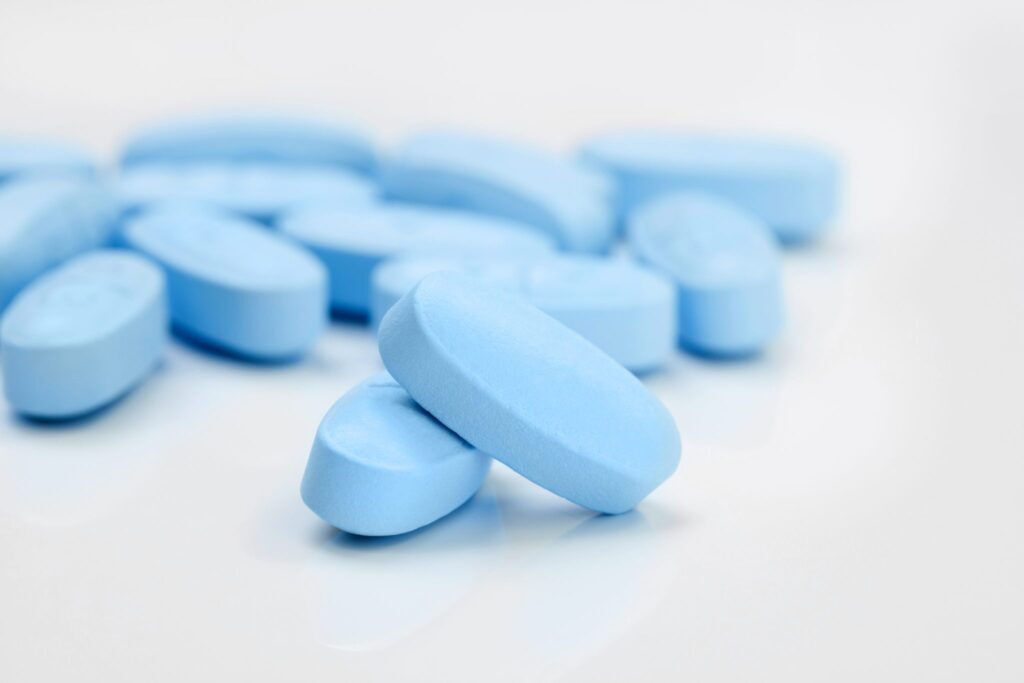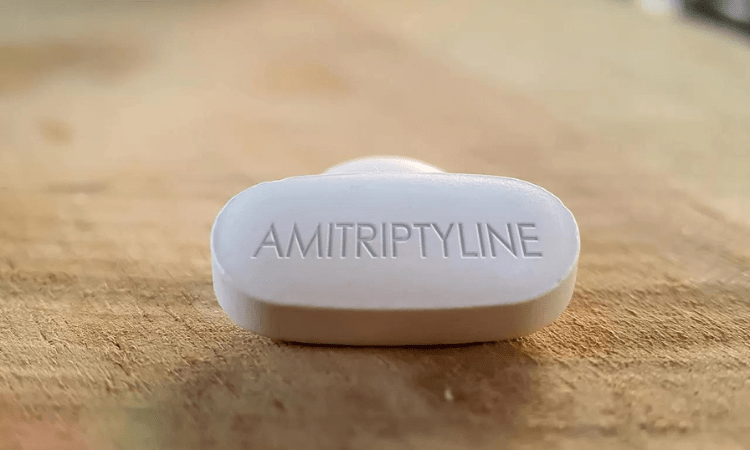Meet Alex, a resilient individual navigating the challenging landscape of treatment-resistant depression. Despite trying various traditional antidepressants, Alex found little relief, leading her to explore innovative alternatives.
In recent years, Spravato (esketamine) emerged on his radar as a promising treatment. As with any medication, there are numerous questions surrounding its effects, and one big one for Alex is, “How long does Spravato last? “ and expressed concerns about potential side effects, including weight gain. In this comprehensive guide, we will not only address these questions but also delve into the intricate details of Spravato’s duration of action and its potential association with weight gain
The science behind Spravato’s effectiveness
Understanding the science behind Spravato’s effectiveness is crucial for those seeking relief and for healthcare professionals navigating the landscape of mental health interventions.
1. Targeting Glutamate Activity:
- Spravato’s active ingredient, esketamine, is a derivative of ketamine.
- Spravato works by modulating the activity of glutamate, the most abundant excitatory neurotransmitter in the brain.
- Disruptions in glutamate balance have been linked to mood disorders like depression.
2. NMDA Receptor Modulation:
- Spravato acts as an N-methyl-D-aspartate (NMDA) receptor antagonist.
- NMDA receptors play a crucial role in synaptic plasticity, the brain’s ability to adapt and reorganize itself.
- By antagonizing NMDA receptors, Spravato influences the release of neurotransmitters, including glutamate, impacting the way neural circuits function.
3. Rapid Onset of Action:
- Spravato’s effects are noticeably faster than those of traditional antidepressants.
- Traditional antidepressants may take weeks to show improvement, while Spravato can improve mood within hours or days.
- This rapid onset is particularly beneficial for those in acute distress or those who have not responded well to other treatments.
4. Synaptic Rewiring and Neuroplasticity:
- Neuroplasticity, the brain’s ability to adapt and form new neural connections, is central to understanding Spravato’s mechanism.
- Spravato’s influence on glutamate activity and its promotion of neuroplasticity may contribute to the rewiring of neural circuits affected by depression.
- This rewiring process has the potential to restore healthy brain functioning and alleviate depressive symptoms.
5. Administration Under Supervision:
- Spravato is administered as a nasal spray but is unique in that it is always administered under the supervision of a healthcare professional.
- This supervised setting ensures precise dosing and close monitoring, minimizing potential side effects and enhancing the overall safety and efficacy of the treatment.
- The supervised administration setting also provides an opportunity for healthcare professionals to provide support, answer questions, and monitor for any adverse reactions.
6. Addressing Treatment-Resistant Depression:
- Spravato is primarily used to treat treatment-resistant depression (TRD), a condition where individuals have not responded adequately to at least two different antidepressant treatments.
- Spravato’s novel mechanism of action provides a new treatment option for those who have not responded to conventional antidepressants.
- Clinical studies have demonstrated Spravato’s efficacy in reducing depressive symptoms in individuals with TRD.
- Spravato offers hope for those struggling with TRD, providing a potential path to symptom relief and improved quality of life.
How long does Spravato last in the body?
Spravato, delivered through a nasal spray, exhibits a relatively rapid onset, generally taking effect within 30-60 minutes post-administration. The impact of Spravato typically persists for several hours, providing a notable window of therapeutic benefit. In certain cases, individuals may even experience residual effects for up to 24 hours after the initial administration.
The duration of Spravato’s effects is not uniform and can be influenced by various factors unique to each individual. One crucial determinant is individual metabolism, which can affect how quickly the body processes the medication. Additionally, the dosage administered plays a role in shaping the duration and intensity of Spravato’s impact.
As with any medication, adherence to healthcare provider instructions is paramount. Careful attention to the prescribed frequency and timing of Spravato administration ensures an optimal balance between therapeutic benefits and potential side effects. Healthcare professionals consider individual factors when providing specific guidance, emphasizing the importance of a personalized approach to treatment.
The substance takes about 30-60 minutes to take effect, reaching its peak in 1-2 hours and lasting several hours. Residual effects may persist for up to 24 hours, indicating a sustained impact on the user. Users should be aware of the gradual onset and lingering effects of the substance.
Factors that can affect the duration of Spravato’s effects
1. Individual Metabolism:
- The speed at which an individual’s body metabolizes Spravato can vary. Differences in metabolism impact how quickly the drug is processed and eliminated, influencing the duration of its effects.
2. Dosage Administered:
- The amount of Spravato administered plays a significant role in determining the intensity and duration of its effects. Higher doses may lead to longer-lasting effects, but dosage needs to be carefully tailored to avoid potential side effects.
3. Frequency of Administration:
- The frequency with which Spravato is administered can affect its cumulative impact. Regular use may result in a more sustained therapeutic effect, while less frequent administration may lead to shorter-term benefits.
4. Individual Response to Treatment:
- Each person’s response to Spravato is unique. Factors such as individual brain chemistry, sensitivity to the medication, and the severity of the condition being treated can influence how long the effects are felt.
5. Overall Health and Medical History:
- General health and medical history can impact how the body processes and responds to medications. Individuals with specific health conditions or taking other medications may experience variations in the duration of Spravato’s effects.
6. Concurrent Medications:
- The presence of other medications may interact with Spravato, affecting its metabolism and overall impact. Healthcare providers consider the potential for drug interactions when prescribing and adjusting the dosage of Spravato.
7. Psychological and Emotional Factors:
- Psychological and emotional factors, such as stress levels, mood, and mental state, can influence how individuals perceive and respond to Spravato. These factors may indirectly affect the duration of the medication’s effects.
8. Treatment Plan Adherence:
- Adherence to the prescribed treatment plan, including the recommended frequency and timing of Spravato administration, is crucial. Deviating from the prescribed regimen may impact the consistency and duration of therapeutic effects.
It’s important to note that the interplay of these factors is complex, and individual variations contribute to the uniqueness of each person’s response to Spravato. Healthcare providers consider these factors when prescribing and monitoring the medication to ensure an optimal balance between therapeutic benefits and potential risks.
Does Spravato Cause Weight Gain?
The current research on Spravato (esketamine) suggests that it is not associated with significant weight gain. In fact, some studies indicate that Spravato may even be linked to a slight decrease in weight. This phenomenon could be attributed to Spravato’s primary metabolism in the liver, potentially leading to a reduction in appetite. Additionally, side effects like nausea and dizziness, occasionally associated with Spravato use, could contribute to a decreased inclination towards overeating.
It’s crucial to acknowledge that individual responses to medication can vary. While weight changes, whether gain or loss, are not commonly reported as side effects of Spravato, it’s essential to monitor and communicate any concerns with your healthcare provider. They can provide personalized guidance based on your medical history and specific circumstances.
For those using Spravato and aiming to maintain a healthy weight, consider the following tips:
1. Eat a Healthy Diet:
- Prioritize a diet rich in fruits, vegetables, and whole grains.
- Limit the intake of processed foods, sugary drinks, and unhealthy fats.
2. Regular Exercise:
- Aim for at least 30 minutes of moderate-intensity exercise on most days of the week.
3. Adequate Sleep:
- Ensure you get sufficient sleep, as most adults need around 7-8 hours per night.
4. Stress Management:
- Effectively manage stress using healthy strategies such as yoga, meditation, or spending time in nature.
While weight gain is not commonly associated with Spravato based on existing information, it’s crucial to approach any medication with a comprehensive understanding of its potential effects. Individuals considering Spravato should engage in informed discussions with their healthcare providers, addressing questions and concerns to make well-informed decisions about their mental health treatment.
Ultimately, the relationship between Spravato and weight gain should be viewed through the lens of individualized care and ongoing communication with healthcare professionals, ensuring a holistic approach to mental health and well-being.
Tips for maximizing the benefits of Spravato
Maximizing the benefits of Spravato (esketamine) involves a combination of following healthcare provider guidance, adopting healthy lifestyle practices, and actively engaging in the treatment process. Here are some tips for optimizing the benefits of Spravato:
1. Follow Healthcare Provider Instructions:
- Adhere strictly to the dosage and administration schedule prescribed by your healthcare provider.
- Attend all supervised sessions as recommended.
2. Communicate Openly with Your Healthcare Provider:
- Discuss any concerns, side effects, or changes in your symptoms with your healthcare provider promptly.
- Be transparent about your overall well-being and any other medications you may be taking.
3. Create a Supportive Environment:
- Foster a comfortable and calming atmosphere for your supervised Spravato sessions.
- Communicate with your healthcare provider about any preferences or concerns related to the treatment setting.
4. Maintain Regular Follow-Up Appointments:
- Attend all scheduled follow-up appointments to allow your healthcare provider to monitor your progress.
- Discuss any adjustments needed to the treatment plan.
5. Combine with Psychotherapy:
- Consider combining Spravato treatment with psychotherapy (counseling or talk therapy) for comprehensive care.
- Psychotherapy can enhance the therapeutic benefits of Spravato and address underlying psychological factors.
6. Prioritize Self-Care:
- Pay attention to self-care practices, including adequate sleep, a balanced diet, and regular exercise.
- Engage in activities that bring you joy and relaxation.
7. Manage Stress Effectively:
- Incorporate stress management techniques into your routine, such as mindfulness, meditation, or deep breathing exercises.
- Minimize sources of stress in your daily life.
8. Stay Informed and Educated:
- Educate yourself about Spravato, its mechanism of action, and potential side effects.
- Stay informed about mental health resources and support networks.
9. Reach Out for Support:
- Cultivate a support system of friends, family, or support groups who understand your journey.
- Share your experiences and seek support when needed.
10. Track Your Progress:
- Keep a journal to track your mood, thoughts, and any changes in symptoms.
- Share your observations with your healthcare provider during follow-up appointments.
11. Avoid Alcohol and Recreational Drugs:
- Limit or avoid the consumption of alcohol and recreational drugs during Spravato treatment.
- Discuss any substance use with your healthcare provider.
Remember that individual responses to treatment can vary, and it’s essential to work closely with your healthcare provider to tailor the approach to your specific needs. Open communication, self-care, and a holistic approach to mental well-being contribute to maximizing the benefits of Spravato.
The Bottom Line
As we demystify Spravato’s intricacies, a narrative of hope emerges for those seeking relief from persistent depressive symptoms. The controlled and supervised administration in a clinical setting adds an extra layer of assurance, emphasizing the commitment to patient safety.
The rapid onset of action and potential for sustained effects make Spravato a promising option for individuals navigating treatment-resistant depression. By delving into its mechanisms, duration of action, and factors influencing efficacy—such as whether Spravato causes weight gain or how long its effects last—we empower individuals and healthcare providers alike to make informed decisions in the pursuit of mental health and well-being. As research advances and our comprehension deepens, demystifying Spravato continues to pave the way for enhanced therapeutic interventions in the realm of mental health.
Now, let us ask you: How has Spravato impacted your perspective on mental well-being? Your shared experiences can be a beacon for others on a similar path. Let your voice be heard in the comments below. For more inquiries connect us at Relevance Recovery.









